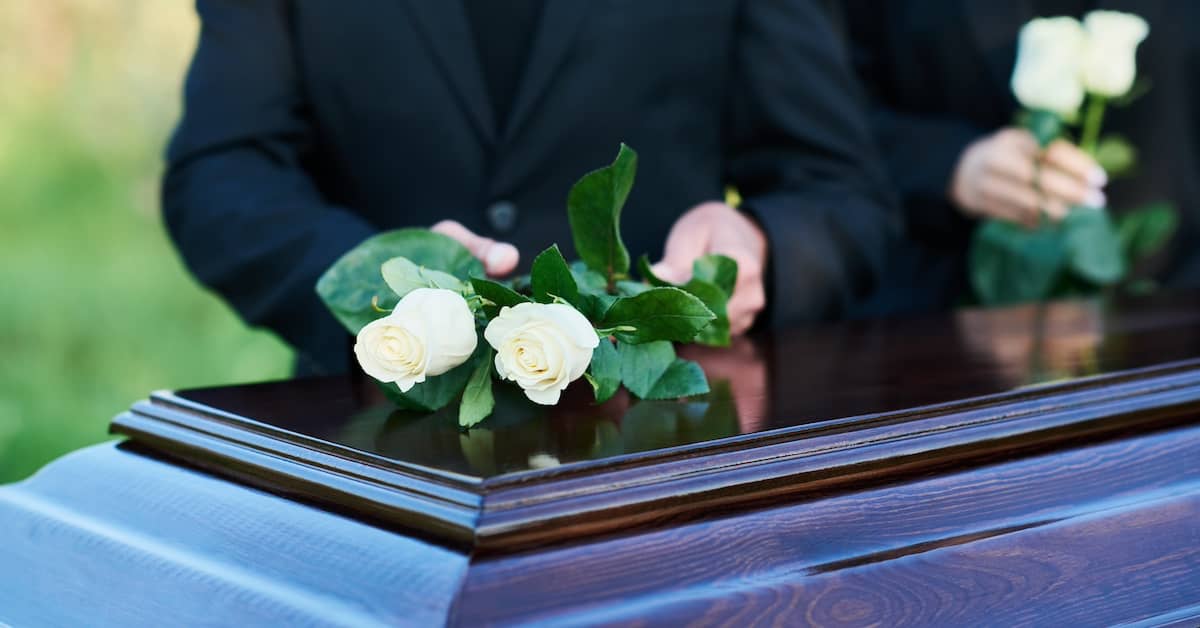
Bringing a wrongful death lawsuit in Ohio can be a challenging and emotional process. One of the most important—and most confusing—issues around wrongful death claims is who can file a lawsuit against another party in pursuit of compensation.
Wrongful death laws differ from state to state, with some states allowing certain family members to file a lawsuit while others providing more limited options. Here, we are going to review how the wrongful death process works in Ohio, including who can bring a lawsuit, applicable time limits, and more.
If you have recently lost a loved one due to the negligence of another, please get in touch with the wrongful death lawyers at Colombo Law to schedule a FREE consultation by calling us at 614-362-7000 today. Our attorneys serve clients in Columbus and throughout Ohio.
What Is a Wrongful Death Lawsuit?
A wrongful death lawsuit in Ohio is similar to a personal injury lawsuit. When someone is injured due to the fault or negligence of another, they have the right to pursue compensation for the damages they suffer as a result of those injuries. These damages may include medical bills, lost wages, pain and suffering, loss of enjoyment of life, and more.
Unfortunately, accident victims do not always survive their injuries. In these cases, the right to take legal action may still be valid—after all, the decedent’s surviving family will likely suffer damages as a result of their loved one’s passing—but it is referred to as a wrongful death claim:
“When the death of a person is caused by wrongful act, neglect, or default which would have entitled the party injured to maintain an action and recover damages if death had not ensued, the person who would have been liable if death had not ensued, or the administrator or executor of the estate of such person, as such administrator or executor, shall be liable to an action for damages…”
– Ohio Revised Code § 2125.01
In a wrongful death claim, the immediate family of the deceased (and potentially others) can seek to recover compensation for their economic and non-economic damages, including:
- Funeral expenses
- Loss of consortium
- Medical bills before the deceased passed away
- Lost income
- And more
It is very important that the family fully weigh the impact of their loved one’s passing to ensure they recover the maximum compensation possible for the losses they have endured.
Who Can Bring a Wrongful Death Lawsuit in Ohio?
There are several individuals who may be entitled to compensation for a wrongful death in Ohio:
- Spouses
- Children
- Parents
However, the only individual who can file a wrongful death lawsuit in Ohio is the “personal representative” of the decedent. The personal representative, also referred to as the “executor,” is responsible for representing the interests of the surviving spouse, children, parents, and other beneficiaries in pursuing compensation for the damages they have suffered.
How Is a Personal Representative Decided in an Ohio Wrongful Death Claim?
A personal representative can be decided in one of two ways. The first and most straightforward is when the individual is identified in the decedent’s will. In these cases, the decedent’s will is honored and that individual is named as the personal representative.
In cases where a personal representative is not identified in a will, the decision will ultimately be made in probate court. A probate judge will evaluate who would best serve as the personal representative. Ultimately, that may be a family member, a friend, or even an attorney.
What Is the Statute of Limitations for Wrongful Death?
There are time limits for filing wrongful death lawsuits in Ohio, which are similar to Ohio’s personal injury rules. These time limits are referred to as the statute of limitations.
For most wrongful death claims in Ohio, that time limit is two years. If a decedent’s surviving family members attempt to pursue compensation for wrongful death after this two-year period, the claim will most likely be denied.
That said, certain exceptions may apply. For example, if the personal representative is suffering from a debilitating condition and is unable to file the lawsuit, “tolling” laws may apply that would allow the claimant to pursue compensation after the two-year time limit.
In addition, the statute of limitations may be tolled in situations where surviving family members were not aware of the potential for a wrongful death claim. For example, if evidence comes to light years after the death showing that someone else was responsible, they may still be able to pursue compensation even if the two-year time limit has elapsed.
Regardless of these possible exceptions, we strongly encourage you to begin the process as soon as possible to determine if you have a claim. There is never a guarantee that you will be granted an exception, and the worst-case scenario is that you lose the ability to pursue compensation because you did not act quickly enough.
Contact Colombo Law for Help with Your Case
Any family who has endured the premature loss of a loved one due to the negligence of another should pursue the maximum compensation they need and deserve under the law. But make no mistake: Defendants and insurance companies are likely to fight your claim.
While some cases may be resolved via settlement, it may be necessary to file a wrongful death lawsuit in Ohio to recover the compensation you and your family deserve. Attorneys at Colombo Law can ensure that your rights are protected, determine when it may be necessary to file suit, and represent you at trial if the need arises.
Contact the wrongful death lawyers at Colombo Law for a FREE case review. We represent clients in wrongful death matters throughout Ohio from our office in Columbus.










